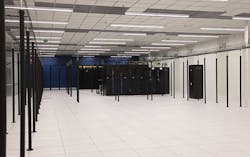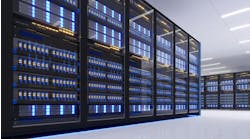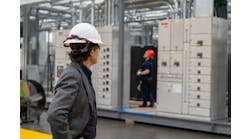EdgeConneX continues to expand its data center network. This week the company confirmed that it is adding 6 megawatts of capacity at its data center presence in Portland, Oregon. The company is expanding its campus in the data center cluster in Hillsboro, bringing new space online in its Portland 02 building.
As the markets for cloud and edge computing continue to grow, EdgeConneX has continued to add capacity in major regional markets in the United States, including Atlanta, Toronto, Miami, Denver, Phoenix and now Portland
“You’ll see us to continue to grow and fill out the second and third builds in those type of markets,” Phillip Marangella, Chief Marketing Officer of EdgeConneX, told DCF earlier this year.
That’s the approach EdgeConneX is taking in the data center cluster in the Portland suburb of Hillsboro, bringing new space online in its Portland 02 building, with plans to build a third data center (Portland 03) to expand the campus to more than 30 megawatts.
The EdgeConneX Portland campus is home to a diverse mix of networking solutions from CenturyLink, Zayo, Comcast Business, Wave, Telia and Verizon. Multi-cloud solutions from Megaport, PacketFabric and NetFoundry provide direct access to Microsoft Azure and other global cloud platforms, and the NWAX internet exchange offers robust localized peering options.
The Pacific Northwest region is poised for substantial growth over the next several years, and developers clearly see the Portland data center market as a future hot spot for hyperscale and enterprise facilities.
The region benefits from a favorable cost environment — including a prominent enterprise zone and Oregon’s business-friendly tax policies—as well as a climate that’s ideal for keeping servers cool. That’s attractive to sustainability-aware enterprises, who also like the region’s ample supply of renewable energy.
Always Edgy, But Not Just Edge Anymore
“Portland is a great example of a traditional Edge market that has rapidly grown into a significant regional market,” said Brian Bellis, VP for Global Edge Sales and Business Development, EdgeConneX. “Over the last four years, since we first established a presence locally in Hillsboro, customer demand for this market has quickly accelerated, encouraging us to develop a full data center campus with a rich connectivity ecosystem. Many edge markets in our portfolio are following this trend as data gravity rapidly trends towards the Edge.”
Edge computing will have a transformational impact on American society and business, enabling new technologies and services across instant wireless connectivity. As we’ve previously noted, edge computing is not a single technology, but a phrase that describes several layers of infrastructure, some of which are refinements of existing models. Edge infrastructure is a response to new technologies – such as autonomous vehicles, the Internet of Things, 5G wireless and distributed AI applications – that require low latency and close proximity to users. These technologies are shaping the future of Internet infrastructure.
EdgeConneX was an early player in edge computing, and was distinctive in its attention to evolving workloads and their requirements. The company built data centers at key network “pain points,” designed to handle high-density racks and operate without on-site staff. That vision has positioned EdgeConneX as an experienced hand in a young ecosystem, where the customers range from startups to tech giants.
EdgeConneX built 24 data centers in about 18 months, extending large-scale content distribution to second-tier markets across the U.S. and Europe. Each facility was a 2- to 4-megawatt data center with about 10,000 square feet of space, with an anchor tenant that was usually a cable multi-system operator (MSO) like Comcast, which is an investor in EdgeConneX. In recent years, EdgeConneX has begun working with hyperscale providers, building large data center campuses in Amsterdam, Dublin and Chicago.






